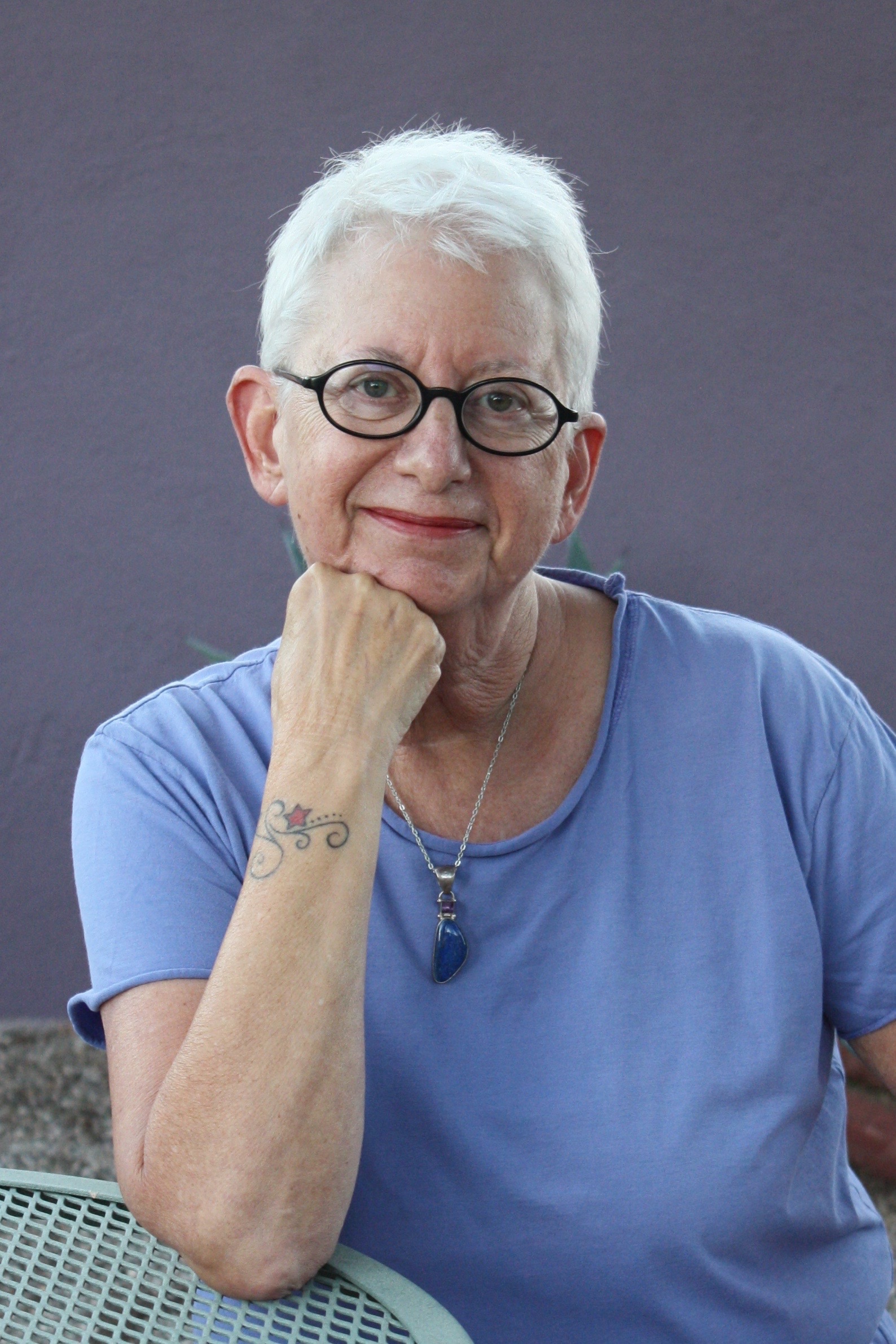Sandra Butler Interviews Penelope Starr

Interview with Penelope Starr on Desert Haven
Sandra Butler: What is it about landdykes that initially captured your curiosity/interest?
Penelope Starr: Perhaps it was a way to reflect the trajectory of my own life, if not in actual fact, then in spirit. My consciousness was raised by the political unrest of the 1960s, the second wave of feminism, and more visible lesbianism of the 1970s, and utopian ideals generated by authors like Marge Piercy and Starhawk. I’m inspired by women who attempt to construct new societies defined by liberation and freedom, so when I began researching women’s land and interviewing a broad range of landdykes, from extraordinary visionaries to wounded warriors to hippie dropouts, I felt a need to amplify their voices. The decision to write it as fiction gave me the freedom to explore my life experiences and imagine fictional characters who represented the wide range of women’s land dwellers.
Sandra: How did you shape the novel?
Penelope: There are 15 interlinked short stories, so each woman stars in her own story but shows up in other stories as the years progress. I conceived it as a family tale that spans years and generations, illuminating the joys and challenges that the women faced in their day-to-day living and relationships. I aimed to capture the fullness of the emotional truths of their lives.
Each woman reflects a different aspect of women’s experience and the overlapping bonds they have created in the community. Some came for a respite from the patriarchal “norm,” healed, and moved on. For others, it remained their home for decades.
Keeping track of fifteen women over four decades allowed me to reflect on the cultural shifts in women’s lives over the last forty years.
Sandra: What do you see as the values Desert Haven represented?
Penelope: There is a determined DIY ethos prevalent on women’s land. Women have the power and imagination to create anything they set their minds to. When they needed a hot shower—they found ways to make that happen; if digging trenches for water lines, they got it done. Desert Haven is about the challenges and successes of women bonding together to create a new paradigm with joy and fortitude.
Sandra: What do you take away from this years-long immersion into the lives of landdykes?
Penelope: I learned to appreciate how the women lived their lives fully, in their bodies, on the land, establishing a place committed to earth-based, sustainable traditions.
I respect their courage to create an alternative culture and to live it fully, both in comfortable collaboration as well as in discomfort and disagreement. They celebrated woman-ness every day by choosing to separate themselves from the patriarchy and aimed to live in harmony with Mother Earth.
Sandra: What has been the response to your readings?
Penelope: Many older women remember themselves in those early years, the risks they took, and the choices they made. Conversations often shift into personal memories of moments when they took their first steps away from patriarchal expectations and began to shape their own lives. Desert Haven is a book about a specific part of lesbian history but can be read more broadly. Lesbian or not, readers seem to respond to the longing for freedom, autonomy, and community the book illuminates.
Sandra: What hopes do you have for the book?
Penelope: I believe it is essential to know our past in order to build the future—and while the challenges today are not what we faced in years past, the work is far from over. I think Desert Haven would be an important read for a women’s studies class, and I would love to hear from young queer people who have read it.
Besides being a part of our history, women’s land is still very much in the present. There are viable communities in varying states of organization and occupancy across the country looking for new energy and vision. Maybe this book will inspire cohesive connections to strive for that lesbian utopia. Or, at the very least, a better future for all of us.
Sandra Butler conducted this interview on August 19, 2024.
See Sandra’s review of Desert Haven here.
Sandra Butler is a writer and an 86-year-old life-long outside agitator. The Kitchen is Closed: And Other Benefits of Being Old is currently available, and Leaving Home at 83 will be published in October of 2024. Butler is Old, Jewish, and Queer, and looking forward to opportunities for future agitation—whenever necessary.
Penelope Starr is a gatherer of stories. Founder of Odyssey Storytelling, a community storytelling event now celebrating its twentieth year, she understands how our stories illuminate the commonalities of our lesbian lives while leaving lots of room for the unique and distinct way each woman makes and lives her choices. Her latest book Desert Haven is available for purchase now.
"Empowerment comes from ideas."
― Charlene Carruthers
"Your silence will not protect you."
— Tourmaline
"Gender is the poetry each of us makes out of the language we are taught."
— Leila Raven


